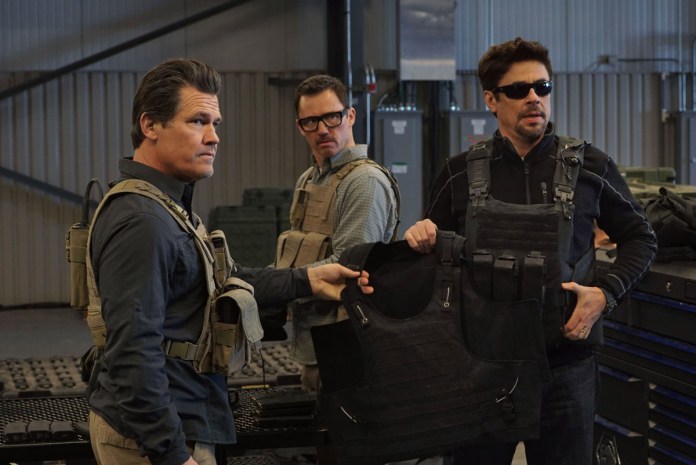Despite Taylor Sheridan’s script seeming like a dead cert for success, director Denis Villeneuve was racked with doubt when he was directing 2015’s Sicario.
The story of a Emily Blunt’s FBI agent, Kate Macer, caught up in a secret war between the US government and the Mexican drug cartels certainly seemed appealing, but Villeneuve wasn’t in it to make a safe, studio action flick.
Instead, for Villeneuve, less was more. The cartels were far more sinister as they hid beneath the surface of the story (few Sicarios appeared on screen) and the good guys were painted in shades of grey. Even the car chase took place in a traffic jam.
With Villeneuve doing his thing, he was unsure that audiences would respond. A strong box office performance ensured opportunity, while the depth of the world he and Sheridan had created meant a sequel was most welcome.
With the director busy working on Blade Runner 2049, it has fallen to Stefano Sollima, who cut his teeth on the brilliant crime show, Gomorrah, to add another chapter, once again from a Sheridan script.
This time out the US is dealing with a string of terrorist bombings. When the authorities discover one terrorist making his way across the Mexican border, the politicians decide Matt Graver (Brolin) needs to set about kicking off a war between the cartels to unbalance a system that allowed terrorists to get into the country.
Graver sets about his mission with gusto, coming up with a scheme that sees his team – including the return of Del Toro’s vengeful Alejandro – kidnap a drug lord’s daughter and pin the blame on a rival faction.
Taylor Sheridan rarely misses a chance to stick the boot into government policy, as he does once again here. Knee-jerk political reactions are given short shrift, as is the inability of government to see past short-term political gains.
And the set pieces again ramp up the tension to unbearable degrees. Which is when it becomes clear, the Sicario franchise now has calling cards a la Jason Bourne. Rather than embrace Villeneuve’s esoteric sensibilities, Sollima identifies what makes a movie a ‘Sicario movie’ (bass-heavy soundtrack, sweeping shots of the landscapes, tense-as-hell standoffs) and adds hefty dollops of each.
Where Villeneuve left plenty of room for ambiguity, and asked the audience to figure out what Kate Macer was going through, Sollima spells it all out in clear, unambiguous strokes. He even employs the laziest of all the exposition tricks, the TV press conference, to get the audience up to speed in an opening sequence that features moments of genuine brilliance and really, really bad editing.
And that conference is held by Secretary of Defense James Riley (Modine), a character more unwelcome than a Mexican at a Trump rally. For the lack of senior military types in the first movie made Graver and company as dangerous as the unseen cartel bosses, but showing us the ineptitude of Riley and co. unbalances the equation.
Still, with Del Toro and Brolin outstanding, and those action sequences utterly thrilling, Sicario 2 is a smart, engaging thriller. But without Villeneuve calling the shots, this is a far more accessible entry into what may yet become a franchise – when Sollima finally allows some ambiguity, the credits immediately roll. If only he’d taken the most important cue from Villeneuve – playing it safe is no way to make a Sicario.








